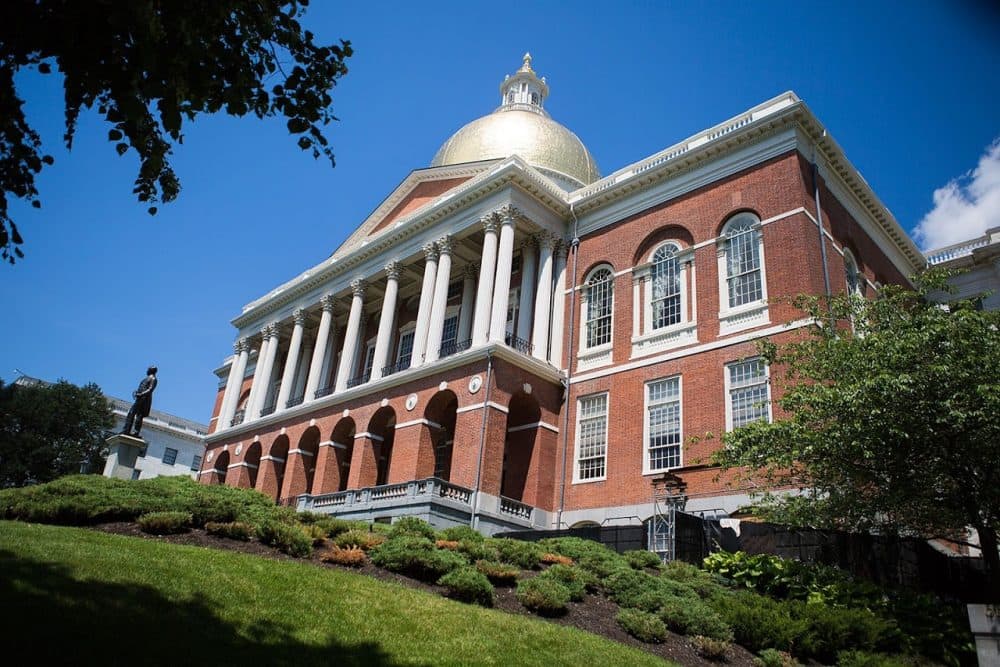Advertisement
Who's To Blame For Slash In Mass. Arts Funding? The Surprising Backstory Of A Budget Cut

The story seems clear as day: Last week, Charlie Baker cut arts funding in Massachusetts in half.
Except the story is not clear at all.
In June, the state Legislature sent Gov. Charlie Baker a budget that included $14 million for the Massachusetts Cultural Council. Amidst declining state revenue, Baker came back with a whopping $7.7 million cut, a blow so egregious that it has fueled public outrage and calls for a legislative override.
...it was the Democrat-led House that first proposed drastic arts funding cuts in April.
If only that were the entire story. The truth is more complex, and it complicates the too-easy assumption (made by people like me) that Baker alone bears responsibility for a terrible blow to the arts in Massachusetts.
The Massachusetts Cultural Council is a remarkable entity, funding hundreds of local cultural councils that disburse small grants to support local artists across the commonwealth. In addition, the MCC administers a fund that supports the rehabilitation of culturally important buildings statewide, including the Museum of Science and the John F. Kennedy Library. Like a small venture capital firm, the MCC's investments have a widespread cultural and financial impact through their support for local labor, arts festivals and infrastructure development, all of which generate revenue. Their small grants are also a stepping-stone for artists, signaling to other grantors that they merit further support.
While the Legislature submitted a budget to keep MCC’s funding at the same $14 million level as last year, and Baker came back with severe cuts, it was the Democrat-led House that first proposed drastic arts funding cuts in April. That's when the House Committee on Ways and Means floated the idea of lopping $4 million off the MCC’s rolls. Their action spurred an insurrection in which 104 representatives signed an amendment to increase the budget to $17 million. When the dust settled, and the House sent its final budget to the Senate, the initial cut was halved, and the MCC stood to lose $2 million.
Advertisement
The Senate disagreed with the House, to put it mildly. Senate President Stan Rosenberg has championed the MCC, and his legislators put forward a $1 million increase in funding, urging the House to come off the ledge when reconciling the two budget proposals. By the time the combined overall budget was sent to Baker’s office, MCC’s budget was back where the conversation began: $14 million.
After all of the legislative haggling, there was little reason to believe that Baker would single the MCC out for extreme cutbacks. It was Baker, after all, who recommended, in January, that the MCC budget remain at $14 million. In May, Baker made a series of sensible appointments to the council that reflected a nuanced understanding of the arts community in Massachusetts.
So how did the MCC end up losing $7.7 million?
Finding a straight answer is anything but straightforward. Both sides flip-flopped from where they originally began. It remains a mystery as to why the House Democrats wanted to cut the MCC's budget in the first place. If savings are the sole reason, it is worth noting that the difference between the cultural council's fully funded budget and Baker’s final appropriation is .024 percent of the annual budget.
Where does this leave the state's arts advocates? Whom to trust, and whom to blame?
While Baker's administration has struggled with projecting revenue, monitoring collections and calculating deficits -- troubles that Baker claims also beset the Patrick administration -- the big surprise about the MCC's budget slash is that it was precipitated by Democrats. Where does this leave the state's arts advocates? Whom to trust, and whom to blame?
The bottom line is that the bottom line for the arts in Massachusetts just shrank by more than half. It is the largest cut to the arts in memory, and with it, Massachusetts falls into the lower ranks of per capita funding among the states, alongside Nebraska and South Dakota. More damaging still, the move signals to the nation’s arts community that support for the arts in Massachusetts is arbitrary and could be targeted by anyone at any point, without opposition, and without any clear explanation why.
No legislative override can undo that damage, and no simplified version of the story will make it Charlie Baker’s fault alone.
